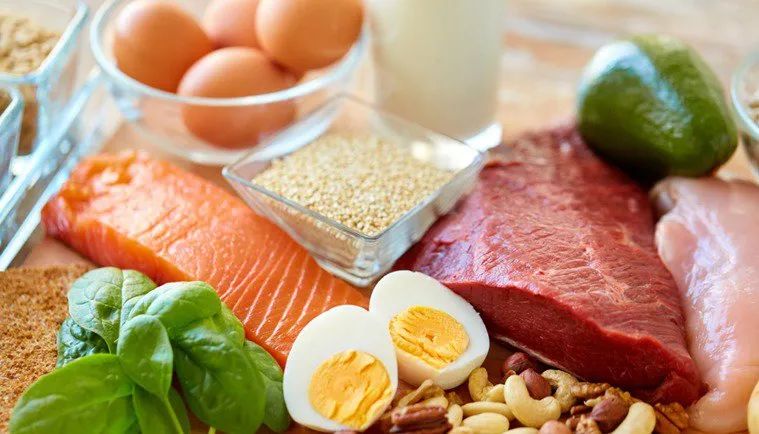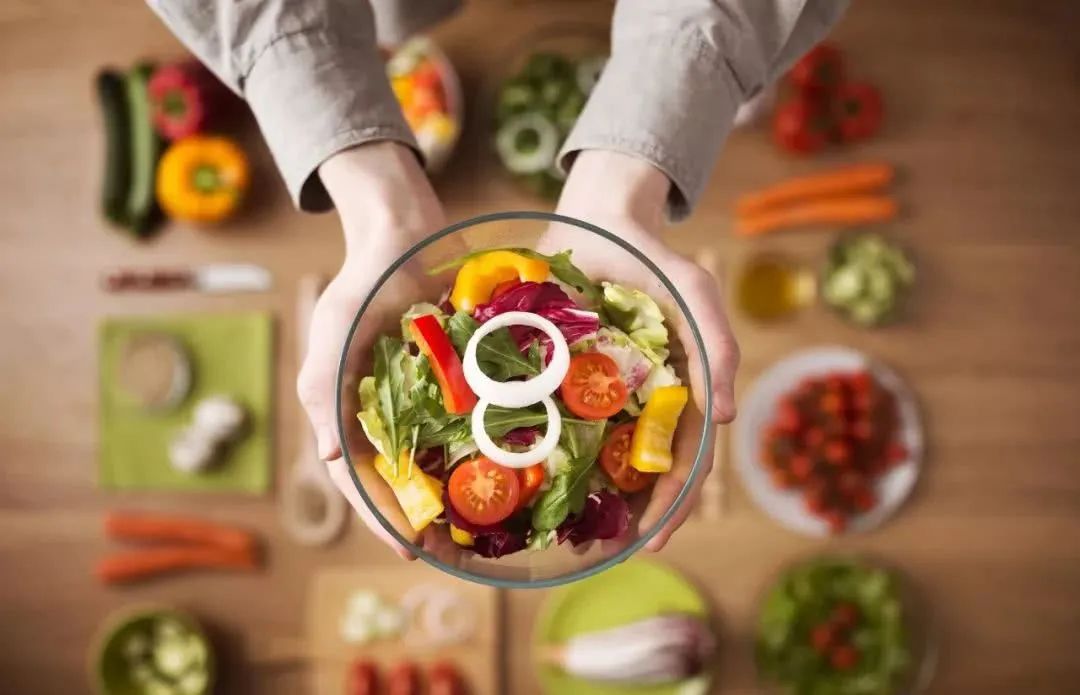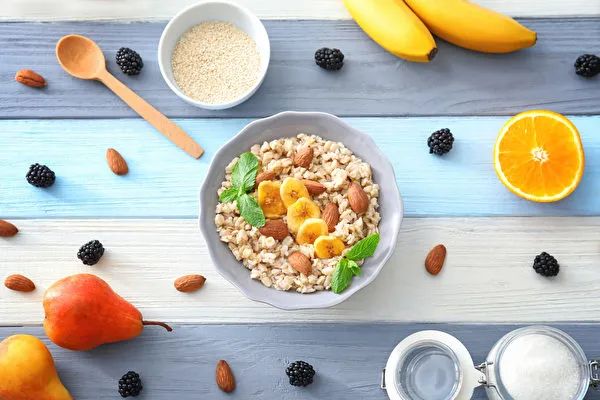

Previously, I mentioned that eating smaller meals more frequently is not as beneficial as rumored. Some friends have asked how many meals a day are appropriate. For most people, especially those with poor spleen and stomach function, three meals a day is undoubtedly the best choice. Today, let’s continue discussing this topic.

01
Why are three meals a day better than eating smaller meals more frequently?
Three meals a day have undergone long-term, large-sample “daily trials.” Although in the past, during difficult living conditions, people might not have had three meals a day, the habit of three meals in China has a history of thousands of years. This dietary habit can be traced back to Zhuangzi’s saying, “Those who adapt to the wild return after three meals, and their stomachs are indeed satisfied,” or the Southern Song poet Lu Fangweng’s line, “Walking briskly, a hearty meal is taken every three meals.”
Nowadays, with greatly improved living conditions, whether domestically or abroad, most people’s eating pattern is three meals a day. In evidence-based medicine, for example, the effectiveness of a treatment must be supported by evidence, verified through a certain number of samples and time. The three meals a day practice has been validated through countless people’s “daily trials” over thousands of years, making it the most suitable eating pattern for the majority.
Three meals a day align with people’s daily rhythms. Although work hours vary due to different jobs, generally speaking, most work hours still follow the pattern of “working at sunrise and resting at sunset.” Having breakfast before work, lunch during a break, and dinner after work not only replenishes energy but also satisfies the desire for food, providing some comfort to the body and mind after labor.
Three meals a day align with the digestive rhythm of the stomach and intestines. Generally, the time for the stomach to empty varies with different foods, but it usually takes about 4-5 hours to empty completely. After the stomach is empty, one feels hungry and it is suitable to eat again, putting less burden on the digestive system. At night, as the body and mind need rest, it is easier to enter a sleep state, and lying down with an empty stomach prevents gastroesophageal reflux. Therefore, three meals a day are more in line with our digestive rhythm. Infants and young children have different eating patterns due to growth and development needs, but it is also recommended that children over one year old do not have night feedings.

02
Have you with spleen and stomach deficiency been eating well for your three meals a day?
A significant portion of my patients, especially younger ones, share a common point before falling ill: irregular eating habits, whether in meal timing or portion sizes, are a major cause of damage to the spleen and stomach.
People who do not eat on time for a long time often find themselves in a state of hunger, which prevents stomach acid from being neutralized in a timely manner. Moreover, long periods without food can diminish the stomach’s ability to secrete mucus, weakening the protective barrier of the gastric mucosa, making it unable to resist the attack of stomach acid, leading to damage of the gastric mucosa, inflammation, erosion, and even resulting in gastric and duodenal ulcers and bleeding.
Eating in a state of extreme hunger can trigger binge eating, causing the stomach to bear a burden it cannot handle, which can also lead to gastric mucosal inflammation, and in severe cases, acute gastric dilation or acute pancreatitis.
Short-term irregular eating may cause temporary symptoms such as abdominal bloating and pain, but if this continues, acute digestive issues may become chronic, leading to chronic gastritis, gastric ulcers, and gastric tumors.
■ Three meals a day nourish the spleen and stomach
I often say that treating stomach diseases is “30% treatment and 70% nourishment.” Many friends find it difficult to grasp this “70% nourishment,” but it is actually quite simple: eat well for three meals a day: regular timing and portion sizes, not too cold or too hot, chew slowly and thoroughly, and you will have accomplished more than half.
■ Eat regular meals in appropriate portions
It is recommended to eat three meals a day at regular times and in appropriate portions. Even if you are not hungry, you should eat something at mealtime, to avoid the damage to the spleen and stomach caused by extreme hunger or fullness, keeping the stomach functioning regularly. Each meal should be about 70-80% full, and when feeling very hungry, slowing down the eating pace can help increase satiety and avoid binge eating.
■ Food temperature should be warm
As the saying goes, “Nine out of ten people have stomach issues, and nine out of ten stomachs are cold,” most people with chronic stomach issues have spleen and stomach deficiency and consuming cold foods can exacerbate the situation. Therefore, it is best to eat warm meals for three meals a day, especially in the morning when the yang energy of the stomach and intestines is just beginning to revive; cold foods should be avoided. Of course, eating “hot” does not mean eating “scalding”; overly hot food can burn the mucosa, which can also damage the spleen and stomach. One of the high-risk factors for esophageal cancer is consuming hot foods.
■ Chewing slowly aids digestion
Generally, when food enters the mouth, it must first be chewed and mixed with saliva for initial coarse digestion before entering the stomach for further fine digestion. To put it simply, the mouth is responsible for the “coarse work,” and the stomach is responsible for the “fine work.” If one swallows food too quickly, it is equivalent to throwing all the work onto the stomach, which inevitably increases its burden. Therefore, for three meals a day, it is important to chew slowly and thoroughly, with a suggestion of chewing each bite 10-15 times before swallowing.

03
Dietary Recommendations for Individuals with Spleen and Stomach Deficiency
Self-assessment for Spleen and Stomach Deficiency
1. Look at the appearance: dull yellow complexion, pale and lackluster lips, white and dry nose tip, thin or weakly overweight.
2. Look at the symptoms: poor appetite, easy abdominal bloating, dull stomach pain, sensitivity to cold in the abdomen, preference for warmth and pressure, loose stools, weak bowel movements, poor sleep, cold extremities, etc.
3. Look at the tongue: pale white tongue, enlarged with teeth marks on the edges, white coating.
Friends with spleen and stomach deficiency may try the following dietary recommendations for three meals a day, 2-3 times a week, which are more suitable for spring.
■ Breakfast to awaken the yang energy of the spleen and stomach
‖ Dietary Recommendation


Ginger Egg Soup
Ingredients:
1 piece of ginger, 2 eggs. (Serves 2)
Method:
Smash the ginger, beat the eggs, stir-fry the ginger until fragrant, then add the egg mixture, stir-fry, add an appropriate amount of water, bring to a boil, and season to taste.
Effects:
Warms the middle, disperses cold, awakens the spleen, and stimulates appetite.
■ Lunch with Seasonal Chives to Boost Yang Energy
‖ Dietary Recommendation


Stir-fried Chives with Shrimp
Ingredients:
300g shrimp, 150g chives, 3 slices of ginger. (Serves 2)
Method:
Clean the shrimp; wash and cut the chives; smash the ginger; heat oil in a pan, add shrimp and ginger, stir-fry, season, and cook on low heat for about 4 minutes; once the shrimp is flavored, add chives and stir-fry until cooked.
Effects:
Warms the middle and tonifies yang.
■ Dinner with Medicinal Porridge for Stomach Nourishment and Easy Digestion
‖ Dietary Recommendation


Huang Qi (Astragalus) and Dang Shen (Codonopsis) Chicken Porridge
Ingredients:
20g Huang Qi, 20g Dang Shen, a small amount of ginger, 250g chicken, 80g rice. (Serves 2)
Method:
Slice the ginger, marinate the chicken, cook rice with Dang Shen and Huang Qi to make porridge, add chicken and cook until done, then season to taste.
Effects:
Tonifies qi, strengthens the spleen, and nourishes the stomach.



